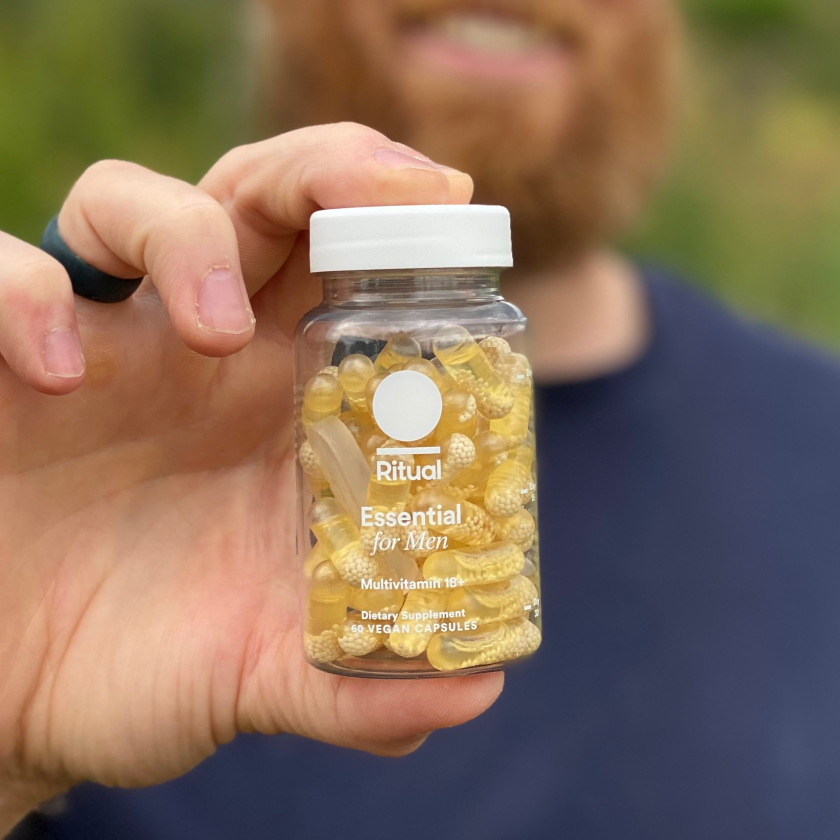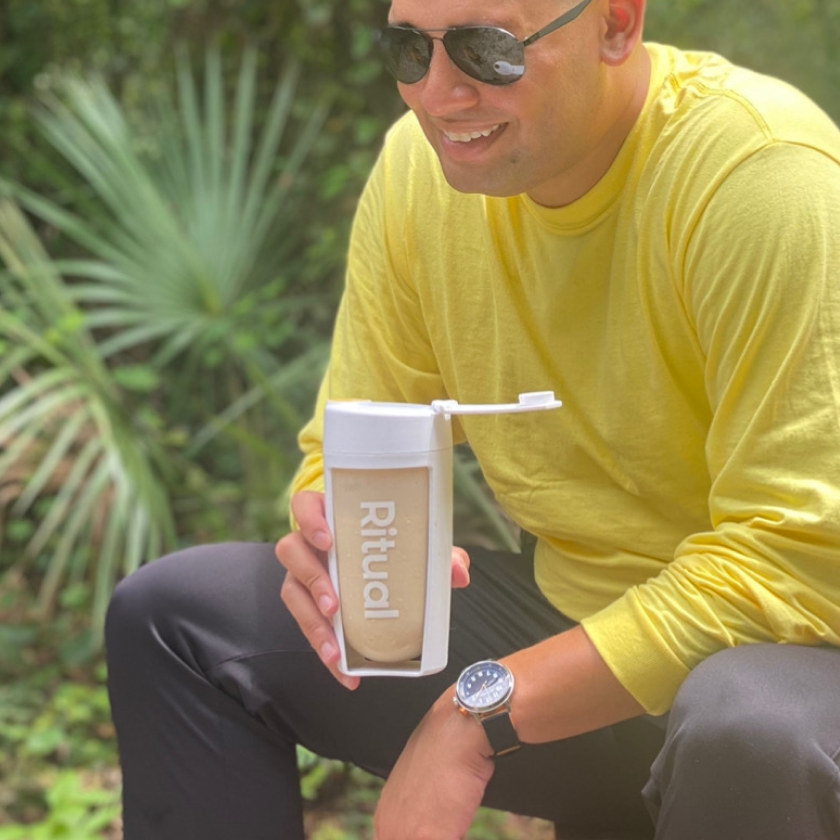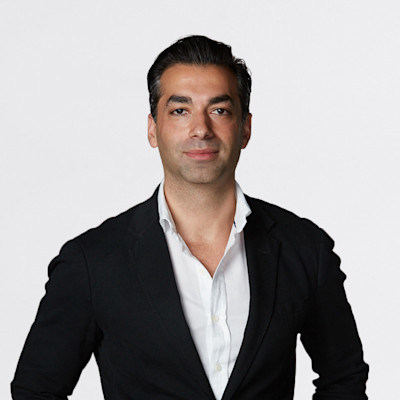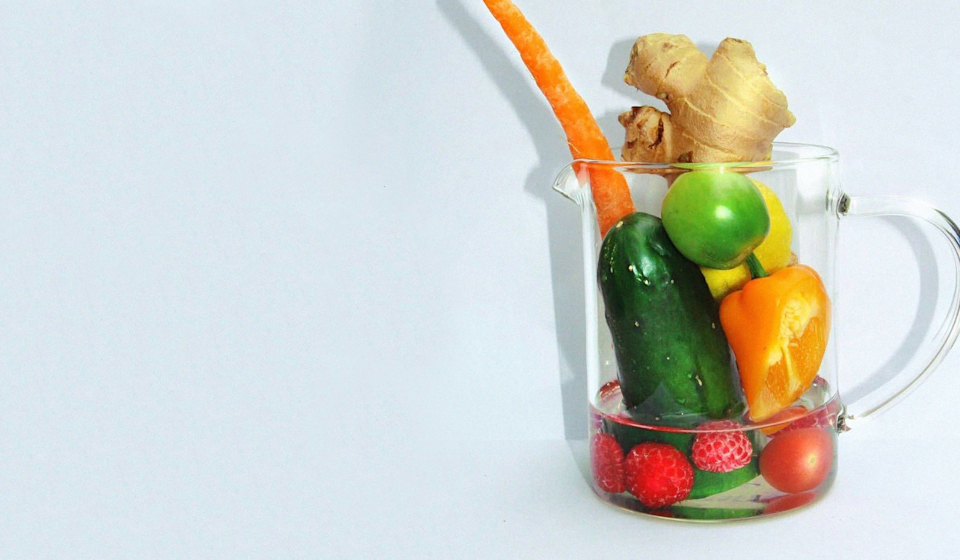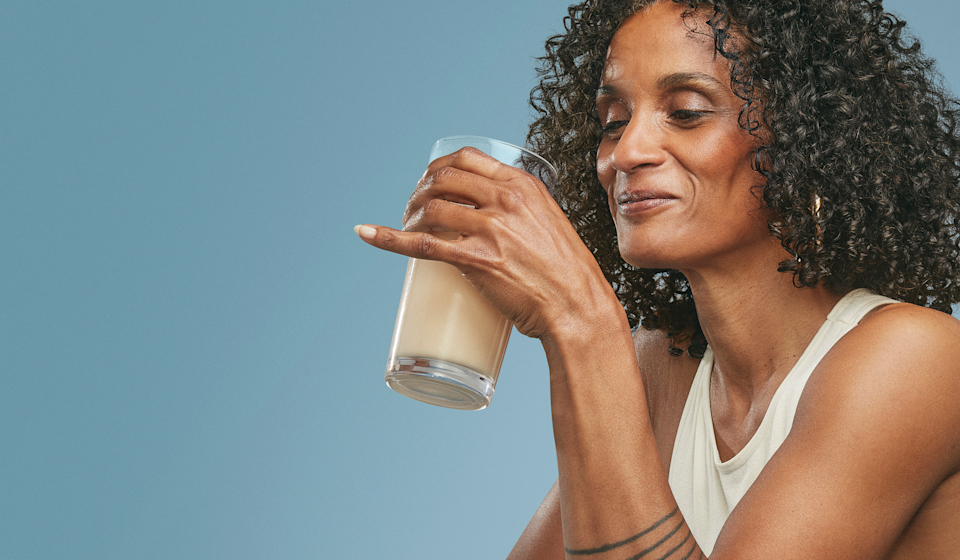Vitamin A. In addition to supporting vision, Vitamin A plays an important role in supporting normal immune function. Multitasking in the name of supporting health? That’s something we can definitely get behind.*
But here’s the thing. While a lot of vitamin A needs can be met through diet alone (you can find it in foods like eggs, dairy, fish, and plant-based options like carrots, sweet potatoes, and leafy greens), men† are a bit behind women in meeting their daily levels. That’s why opting for a multivitamin with vitamin A can be a really good idea. (2)
Zinc. While we're on the topic of multitasking (not to mention the immune system), zinc is an important nutrient that helps support normal immune function, along with vision and bone health. Men have a higher recommended zinc intake than women—which is why we recommend looking for zinc in a men’s multi.*
Omega-3 DHA. We get it, omega-3—you’re kind of a big deal. Omega-3 DHA fatty acids play an important role in helping support brain health, vision health, and cardiovascular health, which is why it’s a shame that many of us fall short of meeting recommended daily intakes. And since omega-3 DHA is found mainly in fish, it can be extra tricky if you’re vegan or vegetarian.*
That’s where a quality supplement can step in—and ideally a vegan-friendly one, at that. Pro tip: Look for an omega-3 DHA oil sourced from microalgae.
Vitamin D3. Did you know that up to 93% of men ages 19-50 aren’t getting enough vitamin D from their diets? That’s important, considering vitamin D’s role in supporting bone health, normal immune function, and muscle function. Filling vitamin D shortfalls isn’t just a question of getting some sun, since factors like climate, SPF, and even skin tone can all have an impact. Instead, opt for a supplement that contains vitamin D3, which is the form of vitamin D the body naturally produces.*
Vitamin E. Fact: Many men aren’t meeting their vitamin E needs through diet alone. And since it’s an antioxidant, vitamin E is a defender you may want on your team. A word to the wise: Look for vitamin E sourced from mixed tocopherols in your multivitamin, since that’s the same spectrum of this nutrient found in a healthy diet.*
Vitamin K2. Suffice to say that K2 kind of flies under the radar, so let’s give this key nutrient some of the attention it deserves. In addition to helping support heart health, vitamin K2 is an important calcium-helper nutrient when it comes to bone support. (By the way, there are two main forms of vitamin K: K1 and K2. Learn more here.)*
Vitamin B12. B12 plays an important role in contributing to normal cell division. The caveat? Vitamin B12 is found mainly in meat, fish, and eggs, so vegans and vegetarians can have a really tough time getting enough through diet alone. And since B12 also supports energy-yielding metabolism, shortfalls can manifest as sluggishness and brain fog. That’s where a quality multivitamin can really come in handy.*
Folate. This B-vitamin plays a role in DNA methylation and red blood cell formation. You might recognize the name of its synthetic counterpart, folic acid, which is a popular option in many supplements on the market. But there’s actually an important caveat where folic acid is concerned: Up to one-third of people have a genetic variation called MTHFR, which makes it a bit trickier to efficiently utilize folic acid specifically. That’s why we’d opt for methylated folate (5-MTHF), which is a cell-identical, bioavailable version. In other words, it can be efficiently utilized—even with that pesky gene variation.*
Magnesium. How well do you really know this powerhouse nutrient? Magnesium lends support to the body in lots of ways, from bone health to normal muscle contraction.*
That said, we need a lot of magnesium to meet our nutritional needs—men ages 19-50 should aim for a daily intake of roughly 400-420 mg, and many come up short. You can aim to meet your magnesium needs through your diet (dark chocolate, avocado, and nuts are all good sources), but we also recommend taking a quality magnesium supplement to help fill gaps. (Bonus tip: Look for chelated magnesium, which has shown absorbability.)*
Boron. Allow us to introduce you to this unsung hero. Boron does a lot of work behind the scenes to help support bone health—working alongside other nutrients like vitamin D, calcium, and magnesium.*


